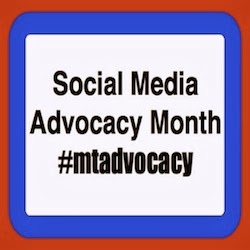
Hello once again to the readers of Back Mountain Music Therapy’s Newsletter! I had taken some time for the holidays to spend with friends and family and then get organized to work again. The AMTA (American Association of Music Therapy) has begun their yearly “Social Media Advocacy Month” of which I am proud to participate in. This year’s theme is “We are . . . ” and will center on exploring and honoring our identity as music therapists and as a distinct and stand-alone profession, unique from other professions and professionals with which we work. My first post of the near year will be a guest post by another very experienced Music Therapist, Judy Simpson:
“We are…MUSIC THERAPISTS!”
Judy Simpson, MT-BC
Director of Government Relations, American Music Therapy Association
When I started my career as a music therapist in 1983, it was not uncommon for me to describe my profession by comparing it to other professions which were more well-known. If people gave me a puzzled look after I proudly stated, “I use music to change behaviors,” I would add, “Music therapy is like physical therapy and occupational therapy, but we use music as the tool to help our patients.” Over the years as I gained more knowledge and experience, I obviously made changes and improvements to my response when asked, “What is music therapy?” My enhanced explanations took into consideration not only the audience but also growth of the profession and progress made in a variety of research and clinical practice areas. The best revisions to my description of music therapy, however, have grown out of government relations and advocacy work. The need to clearly define the profession for state legislators and state agency officials as part of the AMTA and CBMT State Recognition Operational Plan (http://www.musictherapy.org/policy/stateadvocacy/) has forced a serious review of the language we use to describe music therapy. The process of seeking legislative and regulatory recognition of the profession and national credential provides an exceptional opportunity to finally be specific about who we are and what we do as music therapists. For far too long we have tried to fit music therapy into a pre-existing description of professions that address similar treatment needs. What we need to do is provide a clear, distinct, and very specific narrative of music therapy so that all stakeholders and decision-makers “get it.” Included below are a few initial examples that support our efforts in defining music therapy separate from our peers that work in other healthcare and education professions.
- Music therapist’s qualifications are unique due to the requirements to be a professionally trained musician in addition to training and clinical experience in practical applications of biology, anatomy, psychology, and the social and behavioral sciences.
- Music therapists actively create, apply, and manipulate various music elements through live, improvised, adapted, individualized, or recorded music to address physical, emotional, cognitive, and social needs of individuals of all ages.
- Music therapists structure the use of both instrumental and vocal music strategies to facilitate change and to assist clients achieve functional outcomes related to health and education needs.
- In contrast, when OTs, Audiologists, and SLPs report using music as a part of treatment, it involves specific, isolated techniques within a pre-determined protocol, using one pre-arranged aspect of music to address specific and limited issues. This differs from music therapists’ qualifications to provide interventions that utilize all music elements in real-time to address issues across multiple developmental domains concurrently.
As we “celebrate” 2014’s Social Media Advocacy Month (http://musictherapystaterecognition.blogspot.com), I invite you to join us in the acknowledgement of music therapy as a unique profession. Focused on the ultimate goal of improved state recognition with increased awareness of benefits and increased access to services, we have an exciting adventure ahead of us. Please join us on this advocacy journey as we proudly declare, “We are Music Therapists!” About the Author: Judy Simpson is the Director of Government Relations for the American Music Therapy Association (http://www.musictherapy.org). She can be reached at simpson@musictherapy.org


Leave a Reply